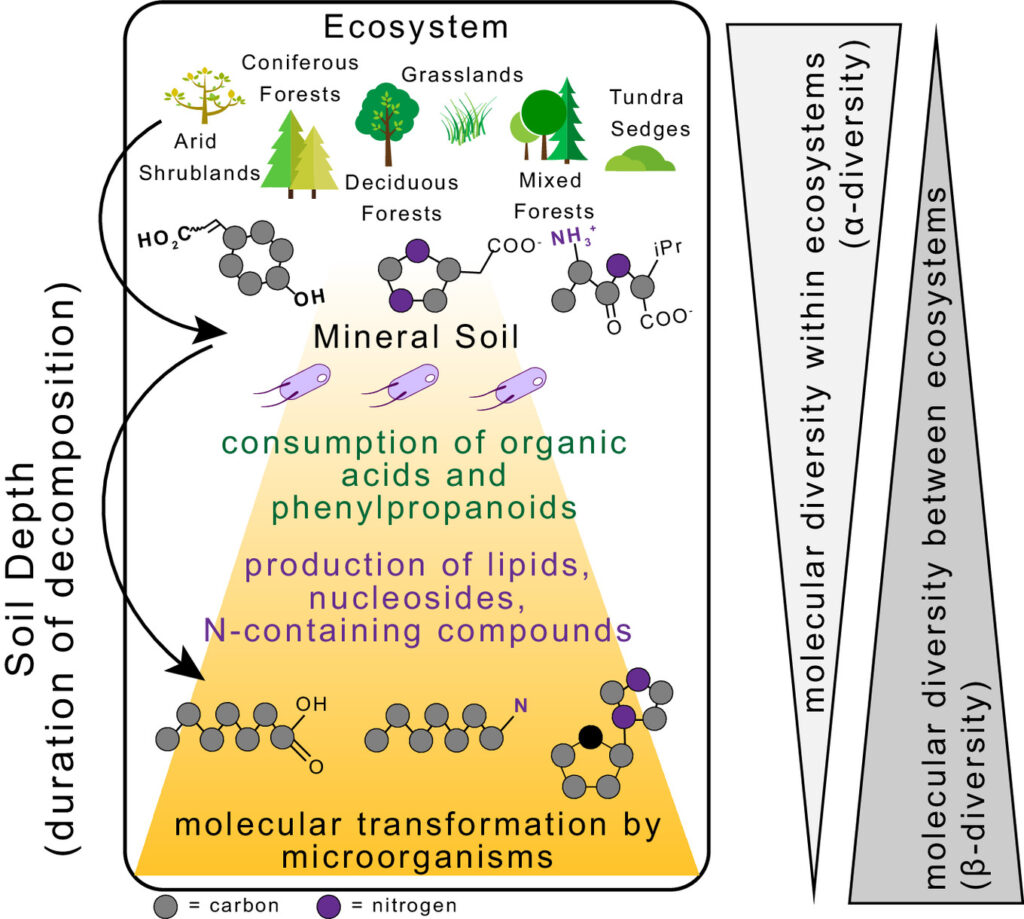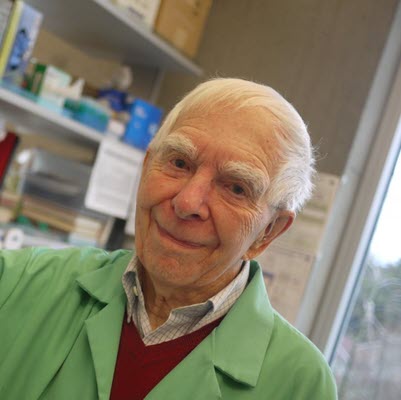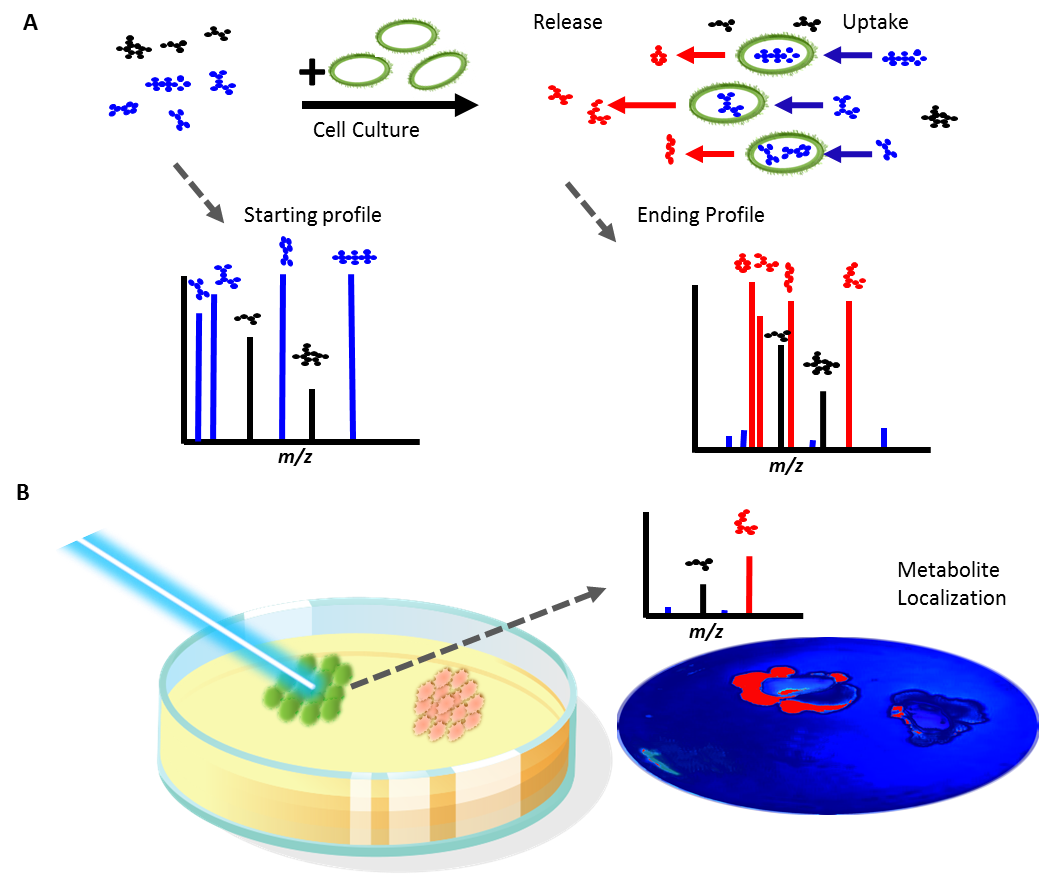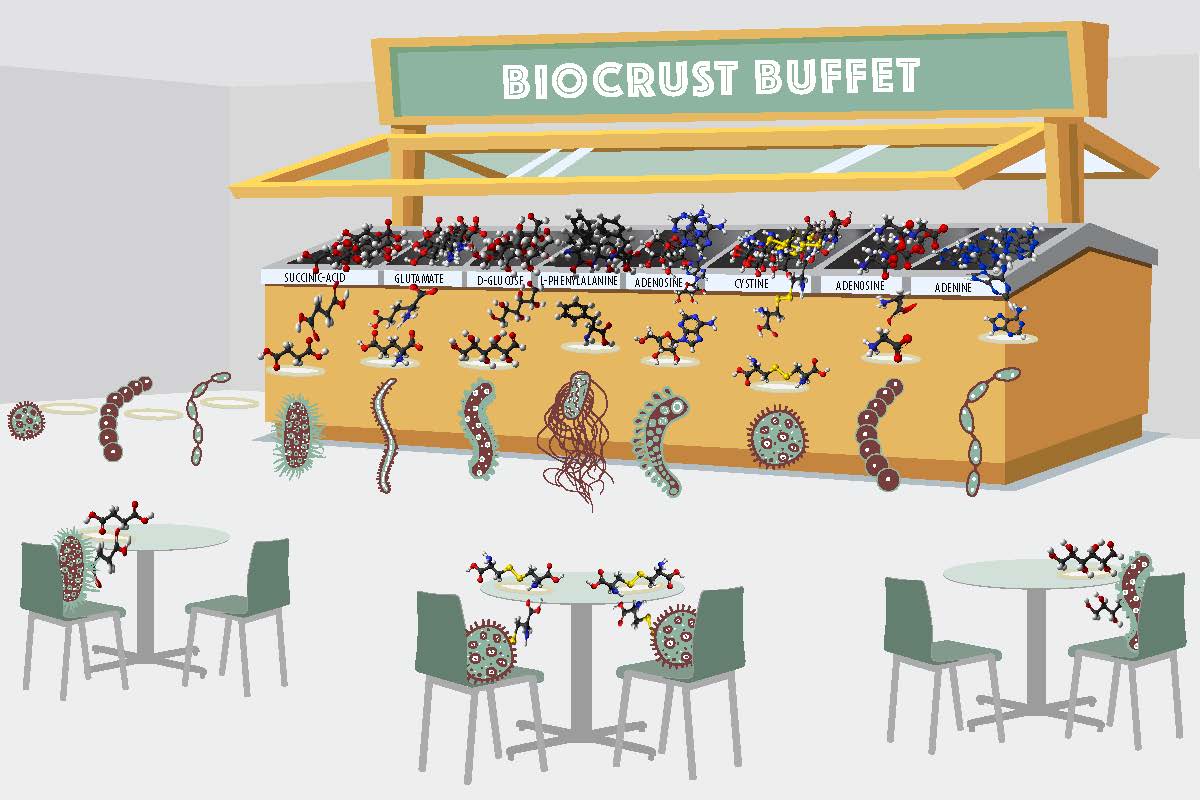In collaboration with the Johannes Lehmann’s Lab at Cornell University, Northen Lab researchers Benjamin Bowen, Suzanne Kosina, and Trent Northen co-authored the recent research article “Decomposition decreases molecular diversity and ecosystem similarity of soil organic matter” published in the Proceedings of the National Academy of Sciences. The goal of the research was to determine how environmental factors affect the molecular diversity of soil organic matter. The study examined soil samples from various ecosystems across the United States, including desert shrubs, coniferous, deciduous, and mixed woods, grasslands, and tundra sedges.
Using liquid chromatography mass spectrometry at the Northen Lab at LBNL, it was discovered that the type of ecosystem, soil horizon, variable mix of hydrophilic and hydrophobic compounds, and the position within the soil profile all had a major impact on the variety of soil organic matter. While the decomposition of plant litter decreases the overall molecular diversity within each habitat, it increases the variations in the composition of soil organic matter between ecosystems. This study highlights how important microbial decomposition is in determining the diversity and makeup of soil organic matter across ecosystems and soil groups and offers insightful information on how ecosystems function and adjust to environmental changes.

To learn more and check out full results, please read the original paper.
Davenport, R., Bowen, B. P., Lynch, L. M., Kosina, S. M., Shabtai, I., Northen, T. R., & Lehmann, J. (2023). Decomposition decreases molecular diversity and ecosystem similarity of soil organic matter. In Proceedings of the National Academy of Sciences (Vol. 120, Issue 25). Proceedings of the National Academy of Sciences. https://doi.org/10.1073/pnas.2303335120




